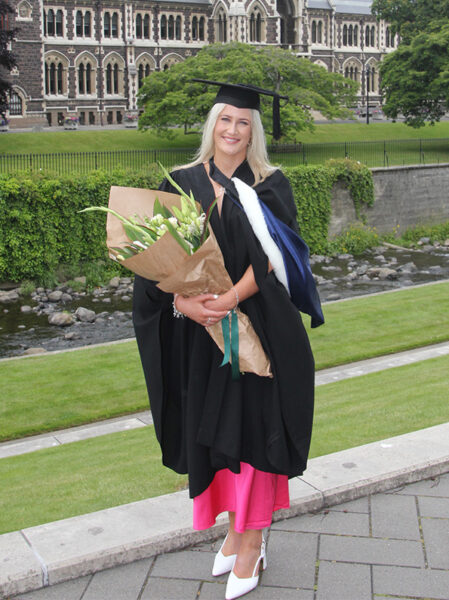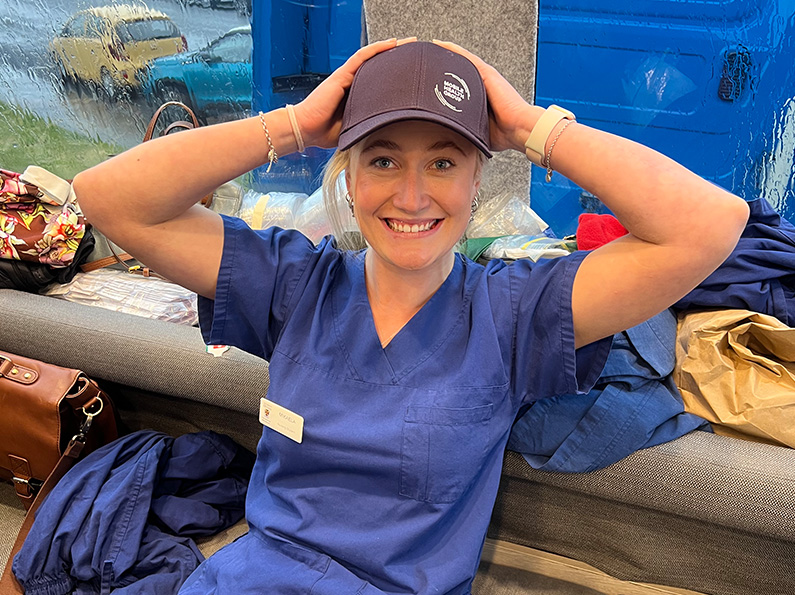It may be 20 metres long and weigh 42 tonnes but our Mobile Surgical Unit – Te Waka Hauora it isn’t just a vehicle. In fact, it isn’t just a mobile theatre, either. It’s an interactive classroom where theoretical learning turns into practical experiences.
As the healthcare landscape continues to challenge us due to the ongoing shortage of doctors, educating health students is important as ever. By providing hands-on education, Mobile Surgical helps to further advance a health student’s study so that they emerge with additional insight and skills to care for patients. This investment is just one of the many areas Mobile Health Group addresses to actively contribute to the overall improvement of healthcare delivery in New Zealand.
Mikaela Bohnenn is a nursing student studying Master of Nursing Science at the University of Otago. Previously, she completed a Bachelor of Science in Anatomy, Public Health and Māori Health. She comes from a rural upbringing and has a passion for rural health equity, so naturally, during her studies many of her assignments while studying public health was focused on rural health care. “I still strongly believe that it is a privilege, not an inequity, to live and grow up rurally, but I do think that the health system has created inequities in health outcomes. The mobile surgical unit is an incredible initiative tackling these statistics with a real drive for change,” she says.
After hearing about the mobile surgical unit from her mum, who had an inspiring chat with Mark Eager, chief executive at Mobile Health Group, at a conference, she felt driven by this newfound interest. She soon found herself stepping onboard the surgical unit earlier this year, scrubs on and filled with excitement at the prospect of pushing her skills and working beyond the university-taught routine of clinical practice. “I was astounded by how quickly everything ran and the number of surgeries a day. I think it’s safe to say if I ever have a hospital theatre placement that it will be too slow for me now…”
“I learnt more about the pre-op process as well as how to really engage and build a relationship with my patients in a short timeframe.”
Her journey on the surgical unit took her to plenty of host sites including, Whangārei, Dargaville, Levin, Tokoroa, Waipukurau, to name a few. It was spending time in each of these places that her comprehension of the struggles of underserved communities was taken to a new level. “Throughout my studies, I was taught many statistics, but being in each community and treating these people allows you to visually see the struggle. It’s one thing to learn them and another to understand. Each statistic represents someone who is part of a collective, and it’s honestly quite confronting. The unfortunate ethnic, educational, socioeconomic and age disparities become so evident, and when paired with geographical location you can see how the health system can exacerbate the already prominent inequities,” she begins.
 “Sometimes we can get caught up in the numbers, which are important to evidence the need for change, but these are people’s lives, their families’ lives. Although it is great that we are all working to narrow the gap, there should not be any gap at all.”
“Sometimes we can get caught up in the numbers, which are important to evidence the need for change, but these are people’s lives, their families’ lives. Although it is great that we are all working to narrow the gap, there should not be any gap at all.”
Mikaela noticed the high prevalence of Māori patients admitted to the surgical unit, and the variation in health literacy. By being able to be in the same room as the patients, particularly paediatric patients, she says she developed a nuanced understanding of cultural safety, and the fear built up for caregivers, whānau and patient over time due to the historical intergenerational trauma. “Not only were these people facing the access-to-care issue that is so prominent in Aotearoa but also many other challenges showing how complex the solution to these inequities is. The team on the surgical unit demonstrated such care for each patient and their whānau with attention to culture. They showed how to properly care for each patient which can pose a challenge especially with paediatric patients. This is learning you can never achieve in a classroom yet so fundamental to healthcare.” By observing and learning from the team, Mikaela is well-prepared to deliver healthcare that is both effective and culturally respectful. “As health professionals providing care to our patients, we have an obligation to address our indigenous inequities, and this should be fundamental to our practice”.
“This experience has reinforced my belief that education must be a significant part of my practice. It has shown me that I cannot assume what knowledge my patients have and that I need to continually reflect on and develop my educational skills throughout my career so that we can help grow stronger communities.”
One of her most meaningful patient experiences that she says she will never forget includes a young female who was initially reluctant to take pre-meds or co-operate during admission. Despite the initial resistance, she dedicated time to build a trusting relationship, and through patience and understanding she gradually gained the patient’s trust. Eventually, she became co-operative, allowing for a smooth and proper admission process. The patient asked Mikaela if she could hold her hand while she went under and asked to be comforted when she was in recovery. “I felt truly privileged to gain her trust and be part of her care throughout her time with the MSU. Her whānau also approached me in the waiting area while she was under anaesthesia, asking me to explain vaccines – what they are, how they work, my opinion, and answer their questions. I felt honoured that they trusted my judgment and knowledge to help improve their health literacy and encourage vaccination for their tamariki.” This experience stands out as a testament to the importance of her role and highlighted the impact of compassionate care.
Exposure to crisis management also prepares students for future challenges, and helps them to develop clinical intuition, navigate complex situations and appreciate the importance of team collaboration. For one unforgettable day for Mikaela, a patient became unconscious during surgery. “The anaesthetist and anaesthetic technician were trying to cannulate. This patient was severely dehydrated making it near impossible to get an IV in a peripheral vein. The team worked so well together to try and find a solution, using each person’s knowledge from previous experiences to successfully get an IV in this patient. This taught me many lessons, such as the communication, problem solving and integration of clinical skills.”
The co-ordination of patient safety and effective management of the clinical team onboard the surgical unit extended to Mikaela who says she was always made to feel welcome and appreciated how they included her in their activities; never making her feel ‘in the way’. “…words cannot fully express my gratitude. The way they engage with students is something I deeply appreciate. They all care deeply about education and my learning, showing great interest in my studies and how they could help advance my knowledge. The support is incredible.”
“The exposure I received throughout my time on the surgical unit with the patients, staff and differing hospital systems has given me an unimaginable opportunity I would never have been given in the classroom.”
Mikaela, who says she strangely “feels at home in a clinical setting”, has a professional goal to become a nurse practitioner and a clinical nurse specialist, with her main interest groups being emergency, paediatrics and women’s health. She is keen to work in rural areas and has a particular passion for the West Coast.
Her vision is clear: To achieve excellence in her field and make a meaningful difference in the lives of rural local communities. “I aspire to be a person of change, especially for rural communities, changing their narrative and fostering equity.” And we look forward to seeing how her vision will come to fruition in the near future.
By offering real-life theatre experiences, Mobile Surgical helps to shape competent students who carry an ethos rooted in practical knowledge and compassionate care. As they develop their careers, they not only apply their technical skills but also embody the values of empathy and dedication learned during their time working on the surgical unit. This continuity maintains a patient-centred healthcare system and evolves with a strong foundation of ethical practice.
Want to elevate your studies and prepare for a successful career in healthcare? Join the clinical team onboard the mobile surgical unit by emailing us: [email protected]
Mobile Health Group partners with Hauora Taiwhenua Rural Health Network to offer Rural New Zealand Health Scholarships, each valued at $5,000, to four rural youths entering their first year of full-time undergraduate study in nursing, medicine or allied health related courses. For more information and to apply for Rural Health Scholarships, click here. The closing date for applications is 30 September 2024 at 5pm.
(Feature photo: Mikaela Bohnenn posing with her new Mobile Health Group cap onboard the Mobile Surgical Unit – Te Waka Hauora.)
(Second photo right: Mikaela Bohnenn on her graduation day at Otago University in December 2023 (Science – Anatomy, Public Health).

